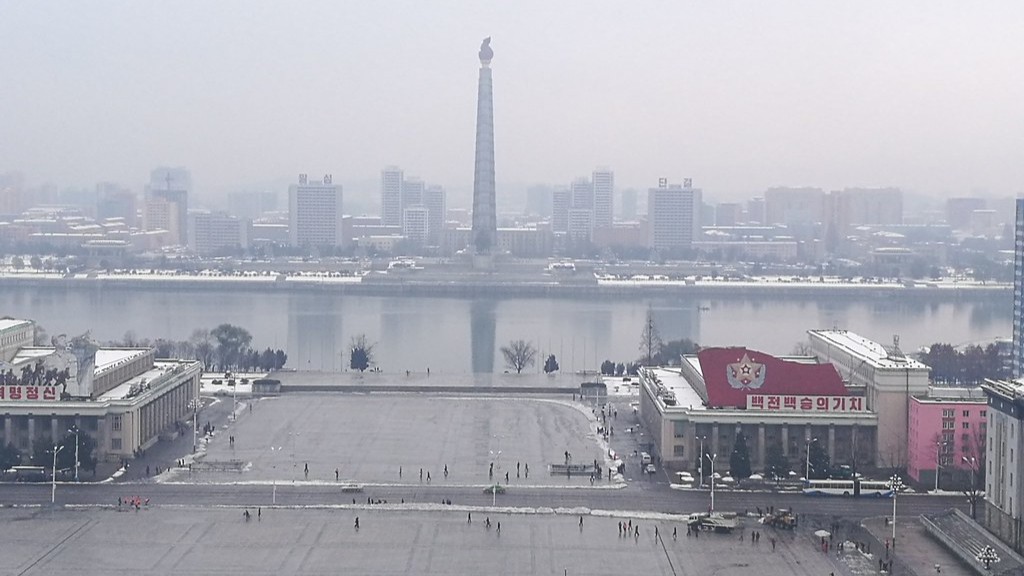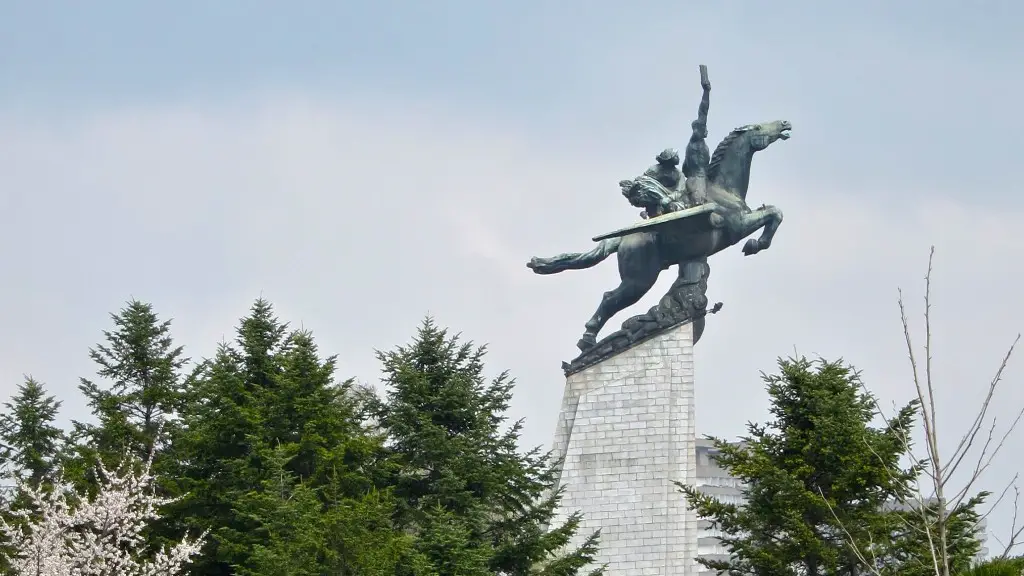Living Conditions
North Korea is one of the most isolated and repressive countries on the planet. Living in the country can be tough and incredibly difficult for its citizens. The majority of North Koreans do not have access to clean water, regular food supplies, medicines or modern sanitation. The quality of healthcare and education is also significantly lower than in many other parts of the world. There is a lack of infrastructure and electricity, particularly outside major cities. The average person lives with little comforts or luxuries and is subject to an intense personality cult devoted to the country’s leader Kim Jong Un.
Daily life revolves around the strict rules and regulations enforced by the government. There is a constant fear of the authorities, and people live in fear of making the smallest mistake or saying the wrong thing. The government closely monitors all aspects of life, including what people watch, what they read and what they say. Telephones and the internet are mostly prohibited and people are generally forbidden from traveling outside of the country.
Economic Inequality
North Korea is one of the poorest countries in the world, and there is a stark economic divide between the wealthy elite and the impoverished majority. The country’s economy is largely controlled by the government and does not allow for foreign investment. The focus of the economy is on the military, which receives a much larger share of state resources than other sectors. This has led to widespread poverty, with many people struggling to afford basic necessities and living in extreme poverty.
The lack of basic resources has led to a subsistence-level economy in some rural areas, with people relying on informal markets to survive. This has led to food insecurity and shortages, leading many North Koreans to suffer from malnutrition and starvation. This has also contributed to a large discrepancy between the rich and the poor.
Politics and Human Rights
North Korea is one of the most oppressive and repressive regimes in the world. Freedom of expression is heavily restricted and citizens are not allowed to speak out against the government. The government is highly authoritarian and has a long history of human rights violations, including a large network of political prisons where people are detained without due process. The use of torture, political executions and arbitrary arrests is common in the country.
The country is run by an unelected ruling elite and is highly militarized, with the majority of the state’s resources being devoted to the military. The government also maintains a large number of spies and informants that monitor citizens and report any suspicious and anti-government activities. Overall, the government has a tight grip on the lives of its citizens and does not tolerate any dissent or criticism.
International Relations
North Korea’s international relations are highly strained, particularly with South Korea and the United States. The country is subject to a wide range of international sanctions, which have had a devastating impact on its economy and on the lives of its people. It has been subject to heavy criticism from the international community for its human rights abuses and nuclear weapon program.
In recent years, there have been some efforts to reduce tensions between North Korea and its neighbors. South Korea and the United States have both engaged in negotiations with the North Korean government and there have been some signs of progress. Overall, North Korea’s relationship with the outside world is still highly tense and uncertain.
Cultural Life
The culture of North Korea is heavily influenced by its authoritarian government. The media and culture is tightly controlled and citizens are encouraged to revere the country’s leaders and glorify the regime. Art, music, and literature are heavily censored and the state promotes a strict ideology of socialist values and obedience to the government.
In spite of these restrictions, there are still some aspects of North Korean culture that can be experienced. Sports, including soccer and weightlifting, have become popular pastimes and citizens can still enjoy traditional dances and folk songs. The cuisine is also unique, with its own flavors and ingredients, such as kimchi.
Communication
Communication in North Korea is highly restricted. The government heavily censors all forms of communication, including television and radio. Newspapers, magazines and books are also tightly controlled and censored. Phone calls are heavily monitored and it is forbidden to make any calls outside of the country. The internet is mostly banned and only a small fraction of the population has access to it.
Overall, communication in North Korea is highly limited and restricted. This has had a significant impact on the culture and the lives of its citizens, who are not able to express their opinions and freely exchange information with the outside world.
Conclusion
Life in North Korea is heavily controlled and restricted. The government enforces a series of harsh rules and regulations and has a tight grip on the lives of its citizens. Living conditions are often poor, with a lack of basic resources and widespread economic inequality. Political and human rights are heavily restricted and the media is censored. International relations are strained and communication is limited. In spite of this, the country still has its own unique culture and cuisine.

